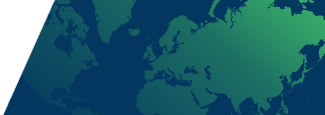

Mozambique
Synthesis
major macro economic indicators
| 2020 | 2021 | 2022 (e) | 2023 (f) | |
|---|---|---|---|---|
| GDP growth (%) | -1.2 | 2.3 | 4.1 | 4.7 |
| Inflation (yearly average, %) | 3.1 | 5.7 | 9.8 | 8.5 |
| Budget balance (% GDP) | -5.4 | -4.8 | -3.6 | -4.3 |
| Current account balance (% GDP) | -27.6 | -23.8 | -34.8 | -37.5 |
| Public debt (% GDP) | 120.0 | 106.4 | 102.5 | 102.6 |
(e): Estimate (f): Forecast *Grants included
STRENGTHS
- Favourable geographical location: long coastline, proximity to the South African market
- Significant mineral (coal) and agricultural resources, and hydroelectric potential
- Huge offshore gas fields, massive investments in LNG megaprojects and new export opportunities
WEAKNESSES
- Under-diversified, dependent on commodity prices (aluminium, coal)
- Inadequate transport and port infrastructure, which restricts the country’s commodity export capacities
- Banking system limited by government financing needs
- Unstable political and security environment
- Weak governance
- Difficult climatic conditions
RISK ASSESSMENT
Robust economic activity driven by LNG development
Despite the deteriorating international environment after Russia's invasion of Ukraine, Mozambique's economic activity strengthened in 2022 on back of a successful vaccination campaign and a robust services sector (45% of GDP) that is now free of Covid-related restrictions. Economic growth will remain robust in 2023 as the first liquefied natural gas (LNG) project, the Coral South offshore platform managed by the Italian group ENI, went into production at the end of 2022 and will reach its full capacity of 3.4 million tonnes of LNG per year. Economic activity will therefore be largely driven not only by the increase in gas exports, but also that of coal, the extraction of which will increase, as well as by aluminium. Coupled with a fall in the import bill, the contribution of net imports to growth will be positive. In addition, under the fiscal stimulus plan (Pacote de Aceleração Económica, PAE) implemented by the government over the period 2023-2024, public investment will also support economic activity. This post-Covid economic support programme should improve the business environment by simplifying administrative procedures and improving the quality of infrastructure (roads, health and education, energy, access to water and telecommunications). In addition, and despite the persistently worrying security situation in the north of the country, the contribution of private investment will remain buoyant thanks to development in the mining and gas sectors. In this respect, construction activity on the TotalEnergies LNG project should resume in 2023 after it was interrupted in 2021 by a jihadist attack on the company's gas site. Last, private consumption will continue to recover, supported by government measures to mitigate the impact of rising prices on households, but it will continue to be curbed by the high level of inflation. Although inflation accelerated in 2022, driven by higher domestic agricultural prices due to severe flooding and higher international commodity prices in the wake of the war in Ukraine, the proactive monetary policy of the Central Bank of Mozambique is expected to contain inflation expectations in 2023.
Twin deficits persist despite fiscal consolidation efforts
Despite fiscal consolidation efforts, the government deficit will widen due to continued high short-term spending. The increase in government revenues generated by increased LNG exports and improved personal and corporate tax collection capacities (10% of GDP), as well as external budget support (2.8% of GDP) will not be sufficient to offset the increase in short-term expenditure. Despite lower pandemic-related costs, spending on the humanitarian and security situation in the north of the country, the EAP fiscal stimulus, debt servicing and defence spending will continue to put pressure the deficit. In order to finance its public deficit, Mozambique will issue Treasury bills on its domestic market, which will be its main source of financing, and will also benefit from disbursements from its multilateral partners. Despite Mozambique's alarming level of public debt, the agreement struck with the IMF for the three-year USD 456 million financing programme in May 2022 will provide a political anchor for gradual fiscal consolidation and institutional strengthening of the state, which has seen an increase in grants from international donors. The World Bank, for example, approved USD 300 million in budget support in July 2022, while the European Union is expected to provide a budget grant of USD 50 million in 2023.
The large structural current account deficit widened considerably in 2022, due to rising world energy and food prices, as well as massive imports for the construction of the Coral South offshore platform: USD 4.4 billion in imports (25% of GDP) were recorded in the first quarter of 2022. In 2023, the significant drop in the trade deficit will not compensate for the increase in the services deficit so that the current account deficit will continue to deepen. The import bill will remain high due to the ongoing construction of the TotalEnergies gas project, but this will be offset by the strong increase in revenues from gas, aluminium and coal exports. On the services side, the deficit will widen as a result of the gas industry’s increased needs. Similarly, the primary income account will remain in deficit given debt interest payments and increased repatriated profits as gas development starts. While the current account deficit related to large natural resource projects ("megaprojects") will be fully financed by trade credits and FDI, Mozambique will draw on its growing foreign reserves (3.8 months of imports in 2023) to finance its non-megaproject deficit (27.5% of GDP).
Security situation still worrying in Cabo Delgado
The ruling Frelimo party has managed to maintain its grip on the political environment since the last general elections in 2019 and the re-election of President Felipe Nyusi as party leader for a third five-year term at its last congress in September 2022. With a comfortable majority of 184 seats out of 250 in parliament, Frelimo governs against an opposition weakened by its internal divisions: Renamo which has 60 seats and the Mozambican Democratic Movement (NDM) which has 6 seats. Thus, despite a possible coalition between Renamo and the NDM at the next general elections in 2024, Frelimo, which has been in power since the country's independence in 1975, is likely to retain its large majority and keep President Felipe Nyusi at the head of government by way of a constitutional amendment vote. However, the political and security landscape will remain unstable due to the violent Islamist insurgency of the 'Ansar al-Sunnah' group that began in 2017 in the north of the country in the Cabo Delgado region, which is home to a large part of the country's LNG and ruby reserves, and which later spread to the provinces of Nampula and Niassa. While the counter-insurgency campaign has made progress, supported by SADC and Rwandan soldiers, the recovered territories are difficult to control by internal security forces, despite their training by European and American partners.
Internationally, Mozambique will deepen its ties with the European Union in socio-economic development projects in Cabo Delgado aimed at securing the presence of European multinationals in the LNG sector. In addition, Portugal and South Africa will remain the main sources of investment and trade flows in the non-hydrocarbon sectors.
Last updated: June 2023


